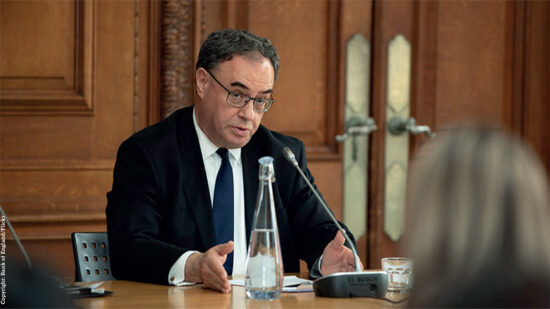The wealth management industry has been told over the last few years that clients are set to jump ship.
An EY report found 33% of customers, globally, switched firms over the last three years and a further 33% expected to do so in the next three years.
But this could be worse when the next generation receive inheritance in the great wealth transfer, as some are expected to leave their parents’ advisers.
According to a report by investor services provider IQ-EQ, this equates to more than $15trn (£11.47trn, €12.68trn).
With this large of sum of money in mind, firms need to adapt to the needs of the next generation as the wealth transfer begins.
Retaining clients
Annabel Bosman, head of relationship management at RBC Wealth Management, told International Adviser: “Typically, you can see next the gen move away from not just wealth managers, but all of the advisers that their families have used.
“Children quite often want to do things differently from their parents to forge their own path.
“The important thing for wealth managers is to make sure that we are bringing the younger generations into the room for conversations.
“The other thing to consider is what we are talking to those younger generations about, as we know that themes like impact investing and ESG are of increasing importance.
“We should be talking to them about topics that will spark an interest and speak to their own investment philosophy and beliefs.
“We should be in a state of constant evolution, whether it’s our teams, our products and services, or the way that we’re talking to the client.”
Pushed forward wealth transfer
IA recently published an interview with Liz Palmer, partner specialising in private client work at Howard Kennedy, who said that the pandemic will certainly have accelerated the transfer.
Therefore, advisers and wealth managers should be looking at next gen clients as soon as.
“I think it’s pushed forward those conversations,” Bosman added. “Baby boomers as a generation can have a tendency to bury their heads in the sand, despite knowing that the issue of intergenerational wealth transfer was coming down the line.
“To some extent, Covid has made people face up to their own mortality.
“It’s escalated conversations around wealth transfer, succession planning, wills, life assurance. We’ve definitely seen a pickup in discussions with our wealth planning team.
“So anecdotally, this does suggest that the conversations are happening, and people have started to put those plans in place.”
Education
Inheriting wealth can open up a lot of opportunities for the next generation, whether its owning property or planning for retirement.
But are inheritors financially educated to handle the money?
Bosman said: “What we typically see with younger generations is that they come to meetings with wealth managers with lots of questions, and lots of information that they’ve probably gleaned from the internet.
“This can be a blessing and a curse, because there’s a lot of misinformation out there as well, so part of our job as wealth managers is to educate.
“Sometimes it is just about helping to identify what is important to them, because there is a difference between the way that younger generations think versus their parents.
“We undertook a survey at RBC to look at how different generations define wealth, and it’s quite telling that older respondents were talking about security, quality of life and freedom, while although those things were very important, younger generations rated happiness and health much more highly than their parents.
“So perhaps, it’s not just a case of there being a need for more education, but a jarring difference between the generations and the way that they think through goals and aspirations when it comes to wealth.”
Role of a wealth manager
As much as parents should be having conversations with their children about wealth in the family, a financial adviser or wealth manager can play a big part as well.
“People can be reticent,” said Bosman. “They don’t like to have these conversations as they can be quite confrontational.
“Whether it’s a wealth manager, wealth planner or financial adviser, they can play a very valuable role, almost acting as an intermediary or a counsellor, to help facilitate those conversations between different generations.
“For a long time, wealth managers have seen their roles evolve.
“There’s been a lot of talk about whether wealth managers will ultimately be replaced by robo-advisers, but for me the human touch is really important and sitting down in person with a client, albeit virtually at the moment, is essential when it comes to conversations which are often about substantial transfers of wealth .”








